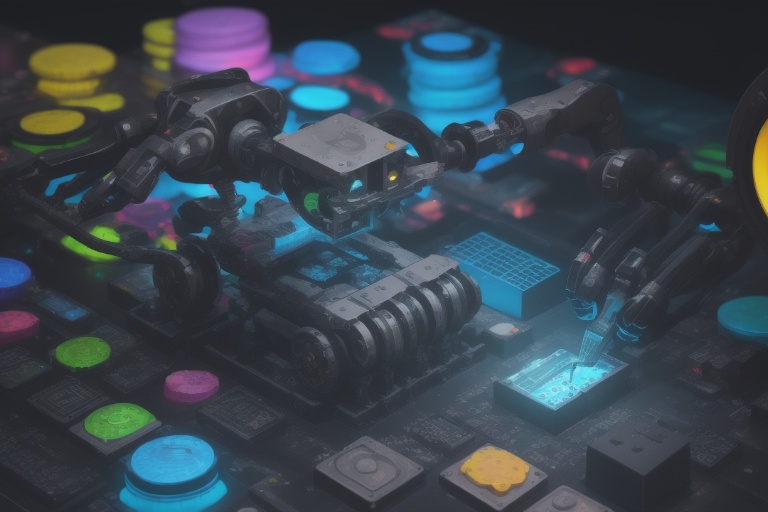Artificial Intelligence (AI) is a burgeoning field in today's tech landscape, rooted in the construction of sophisticated machines tailored to execute tasks that mimic human intelligence. The upsurge in demand for adept AI professionals is notable, underscoring the importance of a solid educational foundation in AI principles and practices. This overview navigates the syllabus of AI coursework, encompassing both undergraduate and graduate programs, equipping readers with insight into the academic path shaping future AI experts.
Artificial Intelligence (AI) is a burgeoning field in today's tech landscape, rooted in the construction of sophisticated machines tailored to execute tasks that mimic human intelligence. The upsurge in demand for adept AI professionals is notable, underscoring the importance of a solid educational foundation in AI principles and practices. This overview navigates the syllabus of AI coursework, encompassing both undergraduate and graduate programs, equipping readers with insight into the academic path shaping future AI experts.
Undergraduate AI Coursework Overview
Within undergraduate studies, the introduction to Artificial Intelligence often starts with fundamental courses that build a strong base. These foundational courses typically include:
Introduction to Artificial Intelligence: This course outlines the history, philosophy, and ethical considerations surrounding AI. It often provides a primer on various AI approaches, including symbolic and sub-symbolic methods.
Mathematics for AI: A strong mathematical foundation is indispensable in AI. Courses in algebra, calculus, probability, and statistics are critical for understanding how AI algorithms and models work.
Programming Fundamentals: AI practitioners must be proficient in programming. Introductory courses in Java, Python, or other programming languages commonly used in AI are a part of the curriculum.
Data Structures and Algorithms: Students learn about managing data through various structures and the algorithms that help process this data efficiently—a crucial component for any AI development.
Machine Learning: As a vital subset of AI, machine learning coursework covers the basics of training computers to learn from and make decisions based on data.
Postgraduate AI Course Specializations
The postgraduate syllabus elevates the complexity of the subject matter, delving deeper into AI specializations:
Advanced Machine Learning: Building upon undergraduate knowledge, this course often covers more sophisticated techniques in statistical learning, neural networks, and reinforcement learning.
Natural Language Processing (NLP): In NLP courses, students explore the intersection of computers and human language, learning to process and analyze large amounts of natural language data.
Deep Learning: A specialization focused on deep neural networks and methodologies such as convolutional and recurrent neural networks, essential for advanced AI applications.
Computer Vision: This subject imparts an understanding of how machines can be programmed to interpret and understand the visual world.
Cognitive Computing: Courses in cognitive computing explore how AI systems can simulate human thought processes in complex decision-making.
Robotics: Robotics courses integrate AI with mechanical engineering, emphasizing how to create intelligent machines that can perform tasks autonomously.
Career Paths and Real-World Application
Equipped with thorough coursework from diploma programs to specialized BTech and MTech courses, AI students acquire a robust foundation that prepares them for the burgeoning world of AI technology. A career in AI can lead to various roles like:
- AI Research Scientist
- Machine Learning Engineer
- Data Scientist
- NLP Engineer
- Computer Vision Engineer
Each role requires a unique set of skills and knowledge, typically derived from the rigorous academic programs in AI.
The Evolving AI Syllabus
It's crucial to note that the syllabus for AI and related courses is not static. As technology evolves, so do the educational components. Institutions frequently update coursework to include emerging trends and techniques—ensuring that students receive the most up-to-date and relevant education.
In conclusion, understanding the syllabus for AI courses is paramount for anyone eyeing a career in AI. This guide offers a peek into the academic journey of an AI professional. Stay tuned, as future articles will delve deeper into the AI syllabus, particularly at the postgraduate level, highlighting the specifics of MTech Artificial Intelligence and MTech Artificial Intelligence and Machine Learning programs. Stay abreast of the developments and opportunities in the invigorating realm of AI study and practice.
Information for this article was gathered from the following source.




